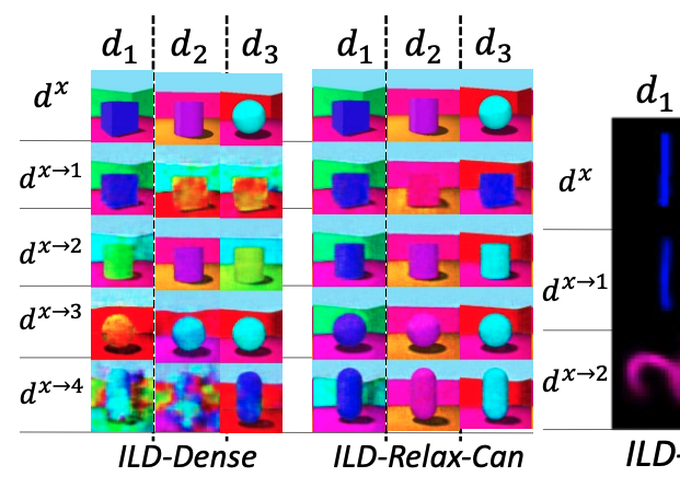Towards Characterizing Domain Counterfactuals For Invertible Latent Causal Models
Abstract
Answering counterfactual queries has important applications such as explainability, robustness, and fairness but is challenging when the causal variables are unobserved and the observations are non-linear mixtures of these latent variables, such as pixels in images. One approach is to recover the latent Structural Causal Model (SCM), which may be infeasible in practice due to requiring strong assumptions, e.g., linearity of the causal mechanisms or perfect atomic interventions. Meanwhile, more practical ML-based approaches using naive domain translation models to generate counterfactual samples lack theoretical grounding and may construct invalid counterfactuals. In this work, we strive to strike a balance between practicality and theoretical guarantees by analyzing a specific type of causal query called domain counterfactuals, which hypothesizes what a sample would have looked like if it had been generated in a different domain (or environment). We show that recovering the latent SCM is unnecessary for estimating domain counterfactuals, thereby sidestepping some of the theoretic challenges. By assuming invertibility and sparsity of intervention, we prove domain counterfactual estimation error can be bounded by a data fit term and intervention sparsity term. Building upon our theoretical results, we develop a theoretically grounded practical algorithm that simplifies the modeling process to generative model estimation under autoregressive and shared parameter constraints that enforce intervention sparsity. Finally, we show an improvement in counterfactual estimation over baseline methods through extensive simulated and image-based experiments.
